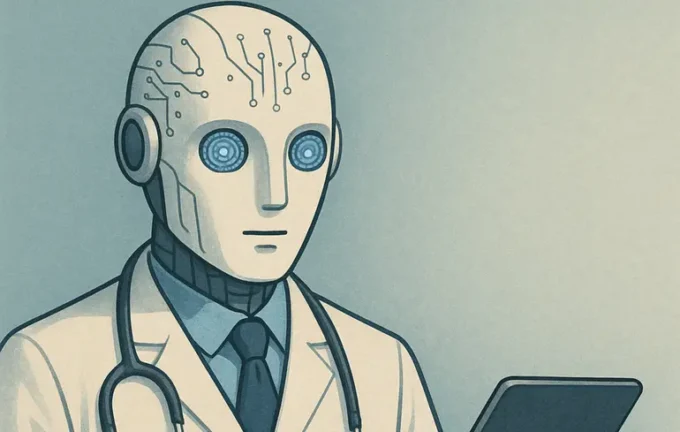The Age of Digital Medicine: How Artificial Intelligence Is Transforming Diagnosis and Treatment

In today's rapidly advancing digital landscape, technology continues to permeate every aspect of daily life, and medicine is no exception. Among the most notable innovations are artificial intelligence (AI) systems, especially large language models (LLMs) like ChatGPT. Over the past few years, an increasing number of patients worldwide are turning to digital assistants for rapid self-analysis of symptoms and even preliminary diagnoses. This shift has sparked a medical revolution, as AI tools often demonstrate remarkable accuracy and speed in assessing health issues. However, this progress also introduces new challenges for healthcare professionals: how to effectively integrate these technologies into clinical practice, and how to avoid potential errors stemming from misinterpretation of data. One prominent example is a Reddit user who suffered from jaw clicking post-boxing injury for five years. Traditional medical tests including MRI failed to identify the cause. But after consulting with ChatGPT, the user received a suggestion that the problem was related to jaw alignment issues and applied a tongue placement technique. Within days, symptoms disappeared, and this story went viral online, fueling discussions about AI's role in medicine. Another case involves Courtney Hoffman, whose son spent three years and 17 doctor visits without a definitive diagnosis. Inputting all medical data into ChatGPT yielded a suspicion of tethered spinal cord syndrome. Surgery performed six weeks later significantly improved the child's condition, transforming him remarkably. This case was featured in the 'New England Journal of Medicine' podcast, showcasing AI’s potential to support clinicians. Experts emphasize that artificial intelligence is increasingly becoming an auxiliary tool in medicine — aiding in patient consultations, symptom analysis, and decision-making. However, studies indicate that AI effectiveness diminishes when used by non-expert users, who may incorrectly input symptoms or dismiss valid suggestions. While the algorithms themselves exhibit high diagnostic accuracy, correct application by healthcare professionals remains crucial. This underscores the need for proper training in AI utilization within medical education. Harvard School of Medicine professor Adam Rodman notes that current AI tools are already being used directly in clinics, but their success is tied to users' knowledge and skills. He advocates for educational programs to teach future doctors how to interpret and apply AI results effectively, reducing errors and improving patient care. Technology companies are actively developing enhanced solutions: OpenAI, for instance, introduced HealthBench — a system evaluating the quality of medical responses based on thousands of simulated patient-doctor dialogues, involving over 260 physicians worldwide. Meanwhile, corporations like Microsoft are creating specialized medical platforms, such as MAI Diagnostic Orchestrator, which integrates multiple LLMs to achieve diagnostic accuracy four times higher than human clinicians. In response to these advancements, top medical institutions are incorporating AI training into their curricula. Harvard Medical School has launched courses dedicated to teaching students the appropriate use of AI tools. As Dean Bernard Chang remarks, this transformation is comparable to the advent of Google in the early 2000s, prompting the question: can we trust a doctor who ignores AI? The era of AI in medicine is evolving rapidly, promising unprecedented improvements but requiring careful integration and responsible use.

